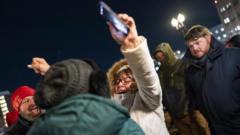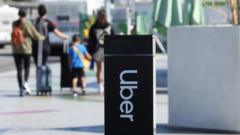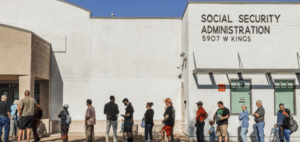On his first day in office, Donald Trump issued extensive pardons for those involved in the January 6 Capitol riots, leading to mixed reactions across the political spectrum. While supporters celebrated the decision as a return to freedom, many observers expressed concern over the implications for law and order.
Trump Issues Sweeping Pardons for January 6th Defendants

Trump Issues Sweeping Pardons for January 6th Defendants
Donald Trump's blanket pardons for individuals convicted in the January 6 Capitol riots have ignited controversy and celebration among supporters and detractors alike.
The pardons and commutations granted by Trump on Monday have drawn sharp criticism and wide-ranging praise, indicating a significant turning point in the nation’s political landscape. The former president’s actions have resonated strongly with the rioters and their supporters as demonstrations erupted outside the Washington DC jail where several were detained.
Among those pardoned is Enrique Tarrio, leader of the Proud Boys, who had been serving a lengthy sentence for his involvement in the riot. His mother joyfully announced his release, stating, “Our president gave my son and all the J6ers their lives back!” Others like Rachel Powell, who vandalized the Capitol, echoed her sentiments of gratitude towards Trump, emphasizing that she would be home for her son's birthday.
The scope of Trump's pardons has unsettled legal experts and advocates, many of whom anticipated a more nuanced approach distinguishing between violent offenders and non-violent demonstrators. “It’s shocking and upsetting,” stated Lisa Gilbert of Public Citizen, concerning Trump’s leniency towards those convicted of violence.
Approximately 1,583 individuals were arrested or convicted in connection to the Capitol riots, with police reports indicating that over 600 faced charges of assaulting law enforcement officers. Despite significant controversy, some argue that these pardons could symbolize a path to healing—a sentiment echoed by lawyer Norm Pattis, who suggested that societal discourse should reflect on historical precedents.
Responses from law enforcement officers present during the riot have been notably critical, with Capitol Police officer Winston Pingeon calling the pardons a "slap in the face." This discontent highlights a potential divide within the electorate as political polarization deepens.
As Trump appoints Ed Martin, an ally who organized a pro-Trump rally before the violent events, to key prosecutorial roles, the future of ongoing investigations remains uncertain. The likelihood of a resurgence in radical groups may hinge on this development, raising questions about the long-lasting effects of Trump's controversial actions.
Civil rights leaders and communities at large are left to reckon with what Trump's decisions may signal in terms of acceptable conduct within political discourse and public demonstrations.
Among those pardoned is Enrique Tarrio, leader of the Proud Boys, who had been serving a lengthy sentence for his involvement in the riot. His mother joyfully announced his release, stating, “Our president gave my son and all the J6ers their lives back!” Others like Rachel Powell, who vandalized the Capitol, echoed her sentiments of gratitude towards Trump, emphasizing that she would be home for her son's birthday.
The scope of Trump's pardons has unsettled legal experts and advocates, many of whom anticipated a more nuanced approach distinguishing between violent offenders and non-violent demonstrators. “It’s shocking and upsetting,” stated Lisa Gilbert of Public Citizen, concerning Trump’s leniency towards those convicted of violence.
Approximately 1,583 individuals were arrested or convicted in connection to the Capitol riots, with police reports indicating that over 600 faced charges of assaulting law enforcement officers. Despite significant controversy, some argue that these pardons could symbolize a path to healing—a sentiment echoed by lawyer Norm Pattis, who suggested that societal discourse should reflect on historical precedents.
Responses from law enforcement officers present during the riot have been notably critical, with Capitol Police officer Winston Pingeon calling the pardons a "slap in the face." This discontent highlights a potential divide within the electorate as political polarization deepens.
As Trump appoints Ed Martin, an ally who organized a pro-Trump rally before the violent events, to key prosecutorial roles, the future of ongoing investigations remains uncertain. The likelihood of a resurgence in radical groups may hinge on this development, raising questions about the long-lasting effects of Trump's controversial actions.
Civil rights leaders and communities at large are left to reckon with what Trump's decisions may signal in terms of acceptable conduct within political discourse and public demonstrations.





















